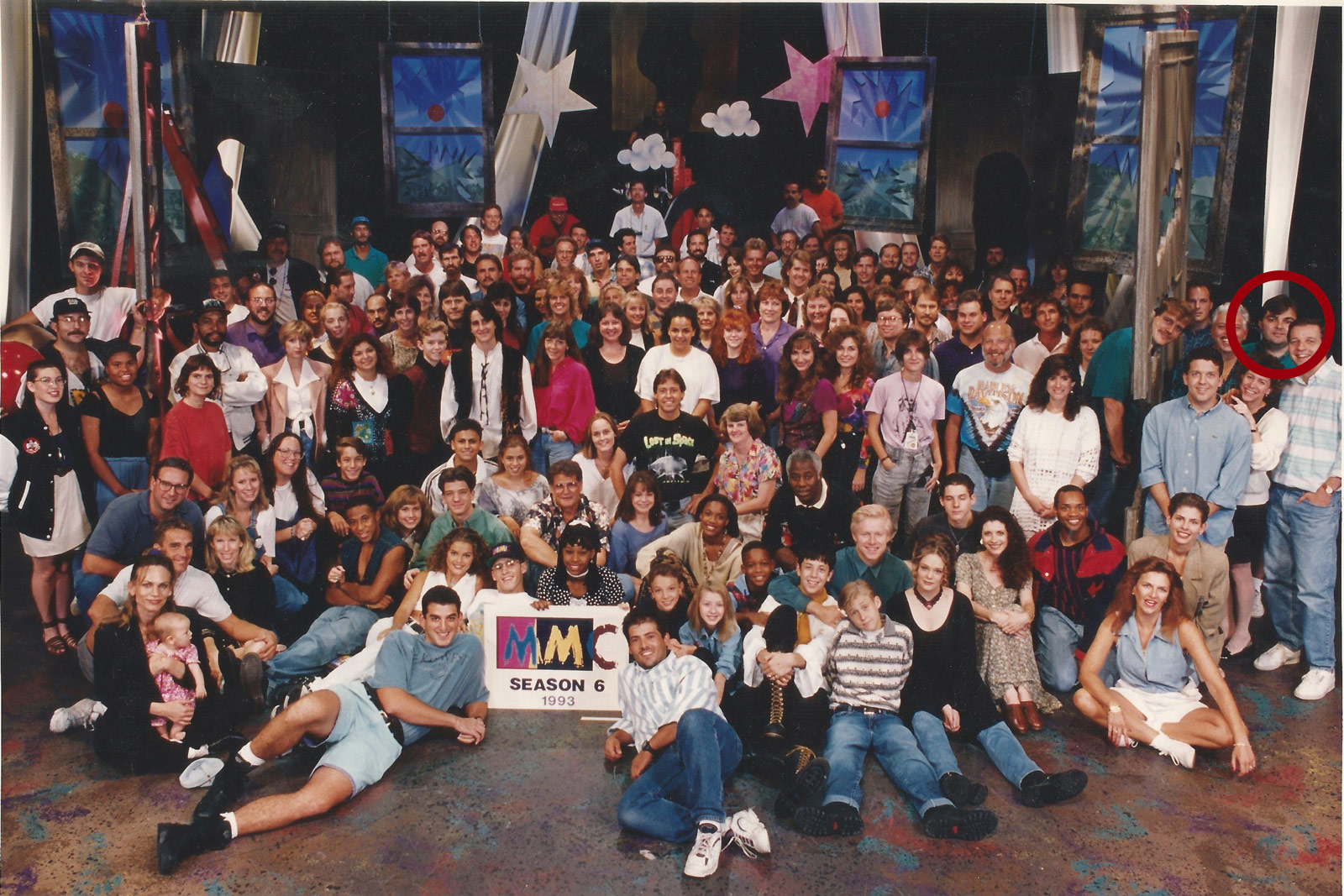Given the number of bestseller and award lists James Ponti’s books have been featured on, it might seem like he’s earned the chance to take a break. Instead, the creator of several enormously popular middle grade series—City Spies, Framed!, and Dead City—has added even more to his to-do list. Along with releasing book 5 of the City Spies series with Mission Manhattan (Aladdin) in February 2024, he also launched his fourth series in September 2024, with the first title featuring the series name: The Sherlock Society (Aladdin). Already the recipient of multiple starred reviews, this new action-packed story features a group of middle-school kids who start a detective agency and set off on a hunt for a famous long-lost treasure—only to end up in the middle of a contemporary environmental mystery hidden deep in Florida’s Everglades.
Here, Ponti talks with Lisa Bullard about turning humor into a superpower, the teachers who helped him become a better writer, and which of his characters he was most like when he was a middle schooler.
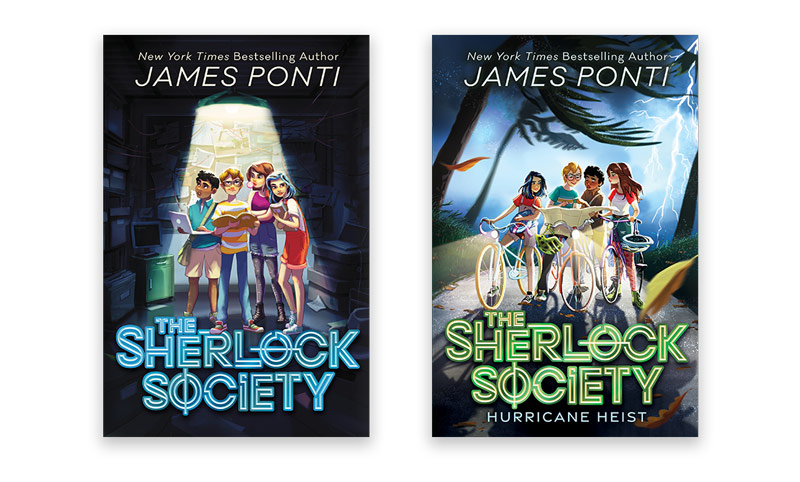
Congratulations on launching another sure-to-be-popular series with The Sherlock Society! What are the rewards and the challenges in creating multiple series for middle grade readers?
I’m not sure what I was thinking when I decided that writing two books a year was a good idea! (LOL) I knew it would be a lot of work, but it’s twice what I imagined because there’s always something new. Currently I’m getting ready for the release of City Spies 6—London Calling (Aladdin, February 4, 2025)—and doing final edits on Sherlock 2, while I’m also writing City Spies 7 and brainstorming ideas for Sherlock 3. That said, it’s also more fun than I imagined because it’s increasing my interaction with young readers.
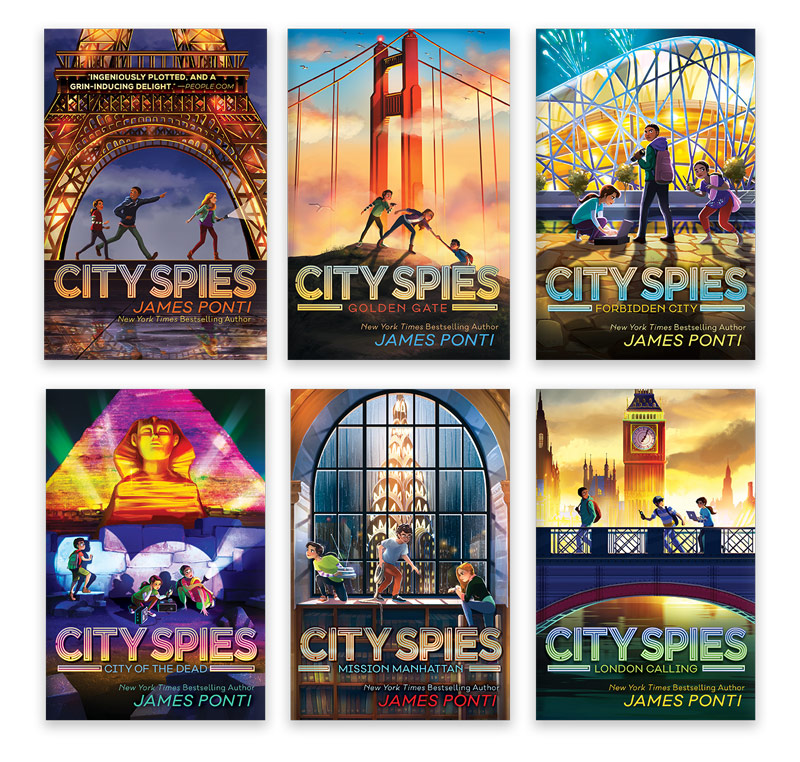
How would you compare/contrast your new series, The Sherlock Society, with your City Spies series?
City Spies and The Sherlock Society have thematic overlaps regarding mystery, adventure, and humor, but the scope and focus of the series are different. The City Spies are looking to save the world, while The Sherlock Society is trying to solve specific South Florida mysteries. As a writer, it is fun to switch back and forth between them because it lets me clear out my head and start fresh, which is helpful and hopefully leads to more original storylines.
Plus, after five City Spies books, it was great to have a fresh set of characters to play with and develop. The kids in City Spies are what I would have liked to have been like when I was growing up, while the kids in The Sherlock Society are more like I was when I was in middle school.
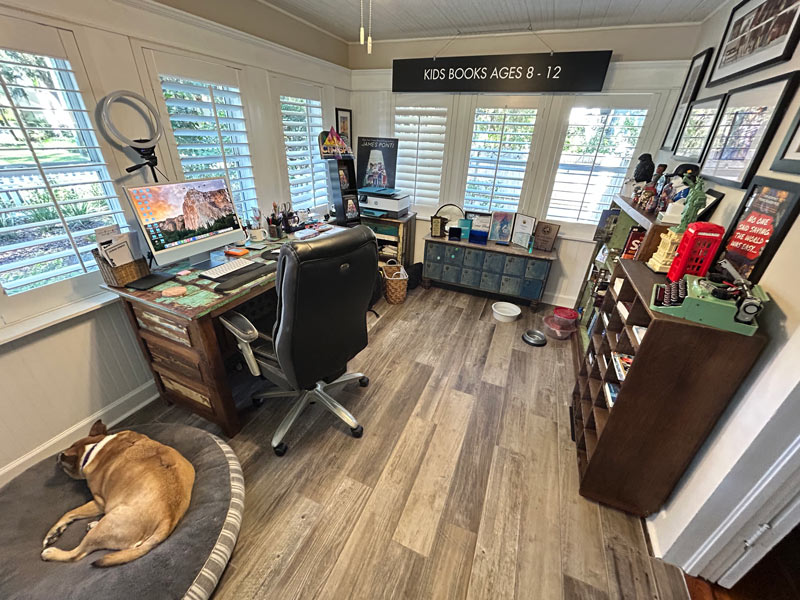
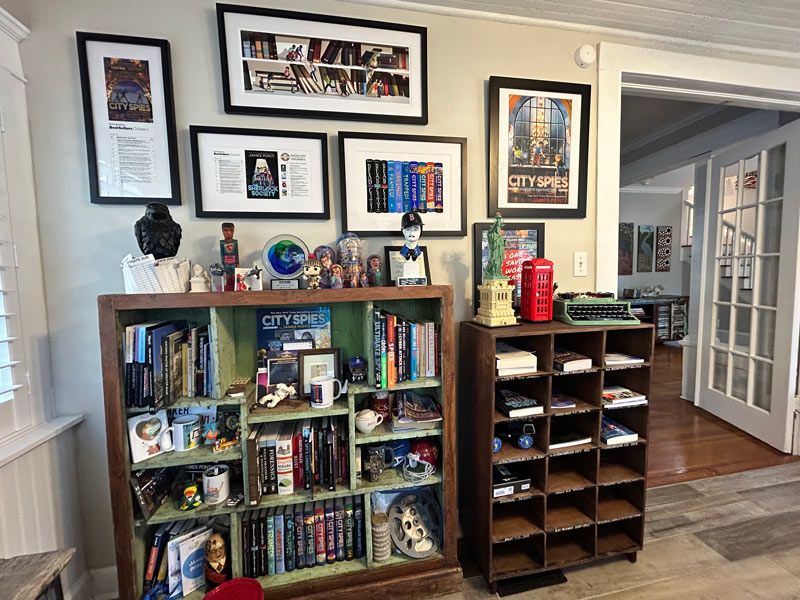
Your storylines are crafted around exciting mysteries and puzzles that challenge your characters to jump into adventures while thinking critically. What is it about mystery and adventure stories that draws you in as a writer?
I like that you included both mystery and adventure because I want my books to blend genres. I’m a huge fan of mystery books, movies, and television shows. I love them because your involvement with the story isn’t passive. The whole point is that you’re trying to solve the mystery alongside the fictional characters. That’s why I love adding puzzles and codes. They’re fun for me to create, and I hope fun for readers to solve.
As far as adventure goes, I feel like that’s the special sauce of middle grade fiction. You don’t really see it on adult shelves, and that’s a shame. When I’m writing these books, I try to identify a mystery that readers will care about and wrap it up in an adventure that they won’t want to miss.
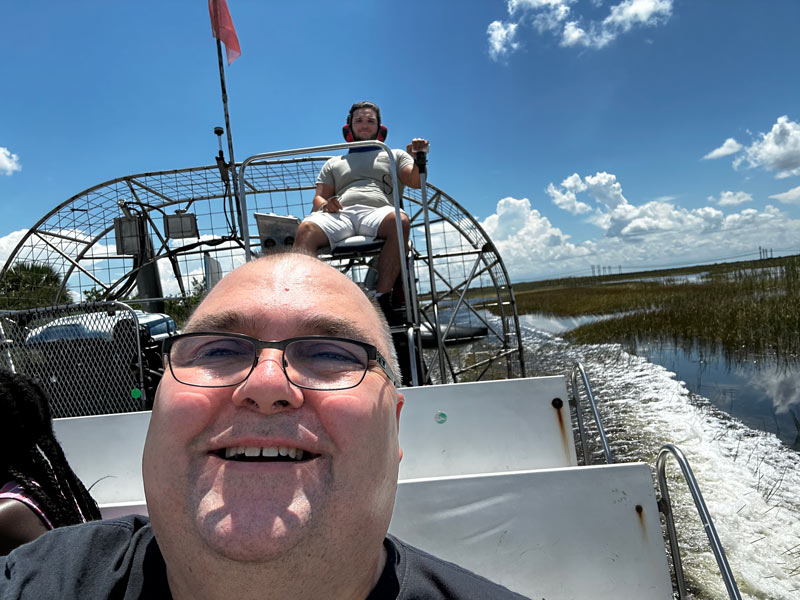
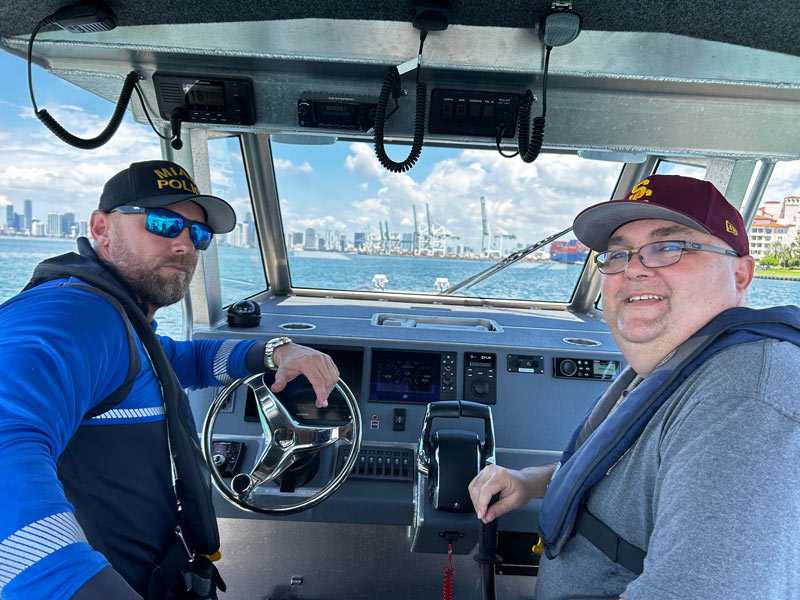
Your novels are high action and high energy, but you also sneak in a ton of history, geography, and other factual material—everything from infamous criminals like Al Capone to code-breaking. How much research do you do?
Research plays a huge part in my process. I interview experts and have spoken with actual spies, police officers, Egyptologists, diplomats, and many others trying to get things right. I’ve always enjoyed fictional stories set in actual places, going back to From the Mixed-Up Files of Mrs. Basil E. Frankweiler. So, I try to visit as many of the locations from the books as I can to make sure I get the locations right.
For The Sherlock Society, this meant riding with the marine patrol in Biscayne Bay, hanging out at a marine biology lab at the University of Miami, taking an airboat ride in the Everglades, and visiting each location mentioned in the manuscript. It’s fun and informative.
What advice do you have for young readers when they’re doing research for their own reports?
I would point out that research provides you with two vital things: the obvious thing is that it helps you get your facts right, but the more important thing is that it spurs ideas and gives you inspiration that you wouldn’t have without it.
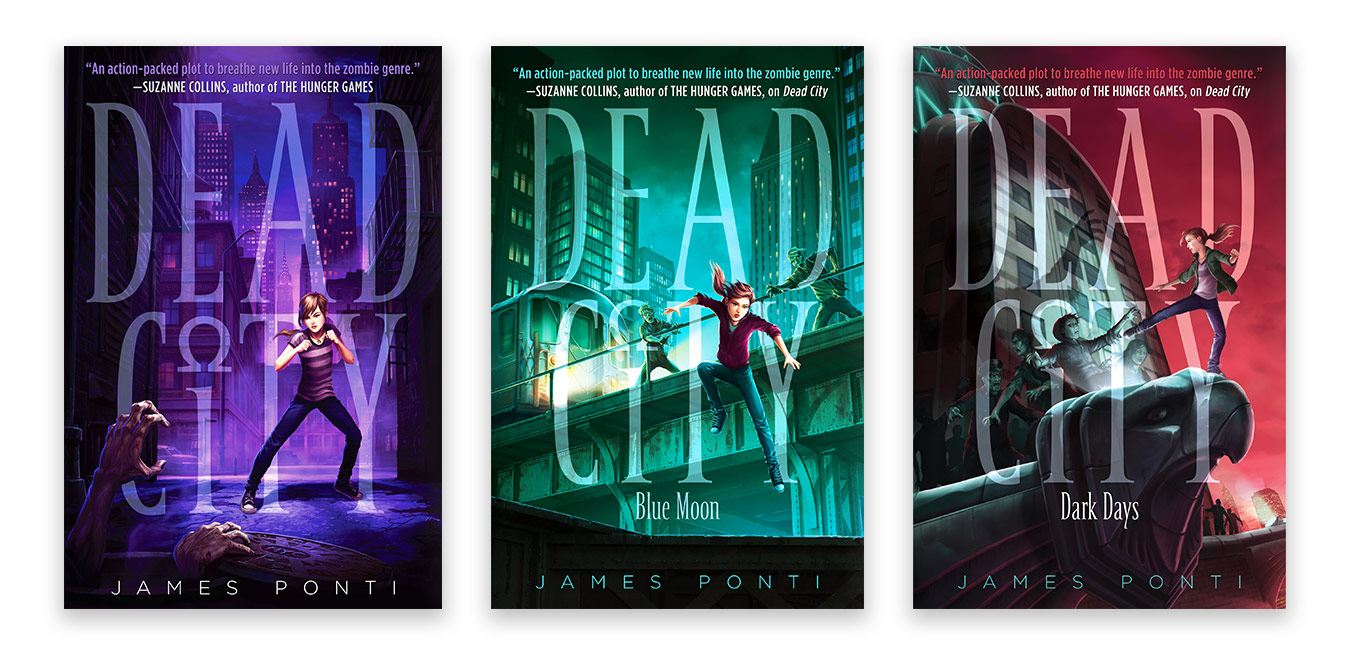
Why is humor such an important part of your books?
The ability to laugh—and especially to laugh at yourself—is a superpower. Humor has always been my greatest tool. It was the key to participating in dinner table conversations as a kid, allowed me to overcome social awkwardness in the classroom, and helped defuse tension during confrontations.
I try to use it in the same way in my books. I put characters in difficult situations, but if they can still be funny, it gives them agency and power. It also helps readers keep things in perspective.
The ability to laugh—and especially to laugh at yourself—is a superpower.”
What advice do you have for young writers who are looking to add humor to their work?
Focus on making the humor organic and natural; don’t force a joke.
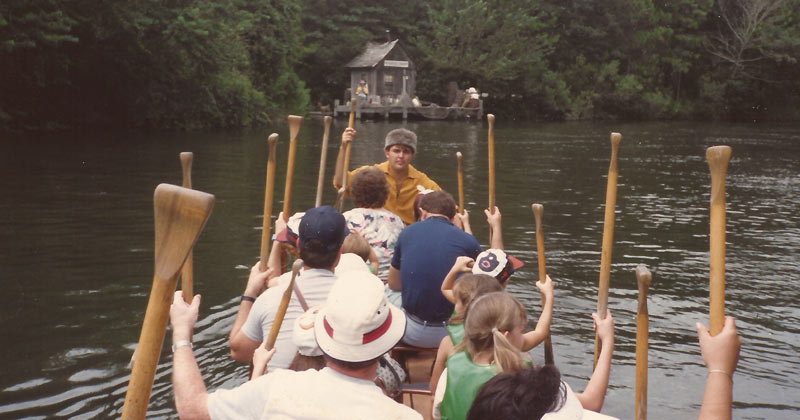
Your website touts you as a teller of dad jokes—hit us with a couple of your favorites!
I wrote my first dad joke in fifth grade for a contest. “Question: If the Mona Lisa’s in Paris, what painting’s in Tokyo? Answer: The Kimono Lisa.” (I was one of the winners.) I also told dad jokes as part of my job at Disney World, when I portrayed Davy Crockett on the canoe ride. We’d reach the burning cabin, and I’d say, “Right there you’ll see my girlfriend’s house. We broke up, though, so now she’s my old flame. She used to work here, but she got fired, and it really burns me up because she was really hot.”
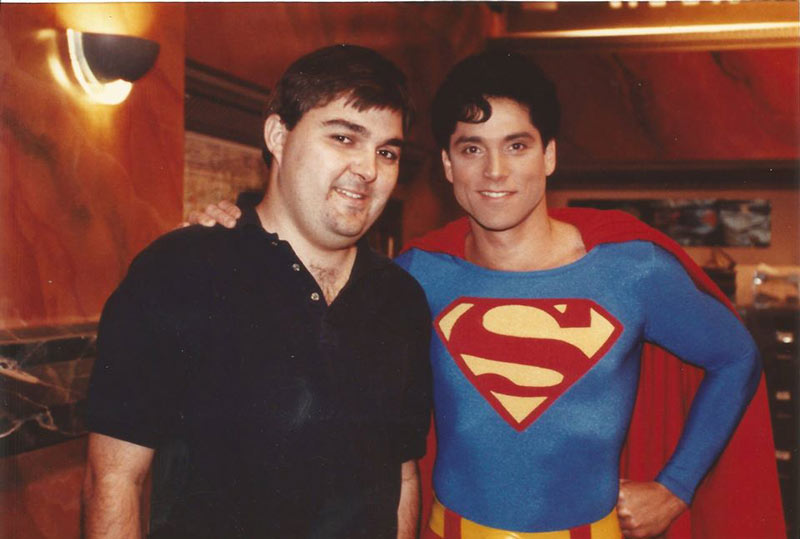
You started as a writer for television and you’ve also written for movies. Can you share a little bit about that part of your history?
I wasn’t a strong reader as a kid because I was frustrated by how slowly it went for me. I loved movies, though, and knew I wanted to be a writer, so screenwriting seemed like a natural track. I started my career writing TV shows for Disney Channel and Nickelodeon.
How is writing for movies or TV different than writing a book?
The biggest difference is that when you’re writing a script, you can only write what people see, not what they’re thinking. It’s a very visual form of writing. After decades of writing that way, I love the fact that now I can write anything I want in books. And I don’t have to worry about budgets. If I want to have a scene at the Eiffel Tower, I can. I don’t have to figure out how to pay for it!
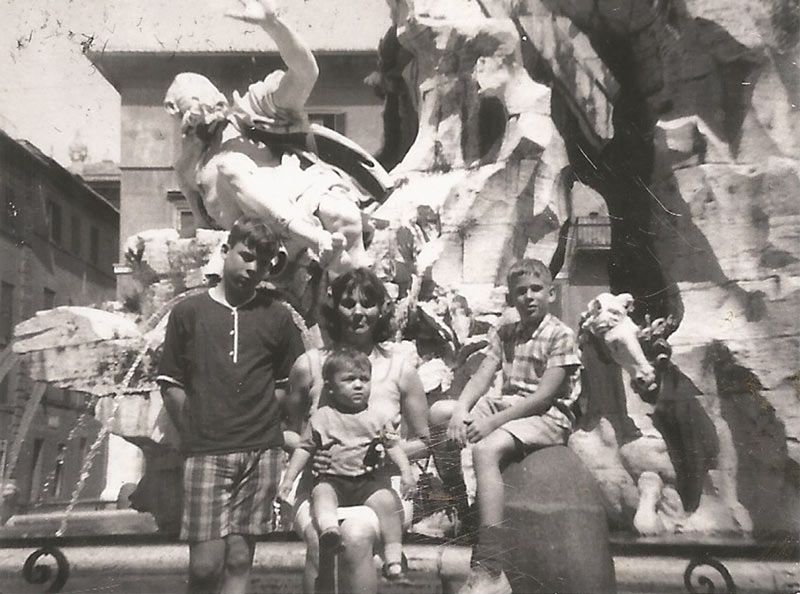
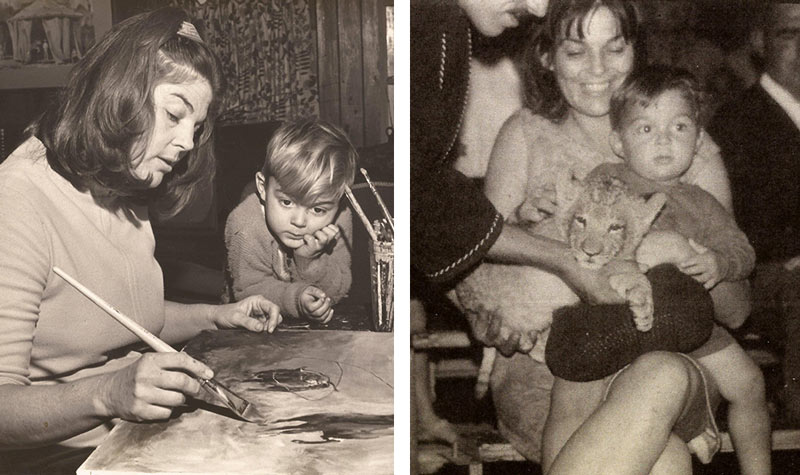
How did your childhood help shape your stories?
I struggled with reading all through school, which was frustrating because I knew that I wanted to be a writer. I also never met my father. He wasn’t a part of my life at all, which was often hard. As a writer, you’re drawn to the hard parts of your life and try to deal with them in the manuscript. That’s why my first eleven books all featured major characters who were in some way separated from their parents.
I struggled with reading all through school, which was frustrating because I knew that I wanted to be a writer.”
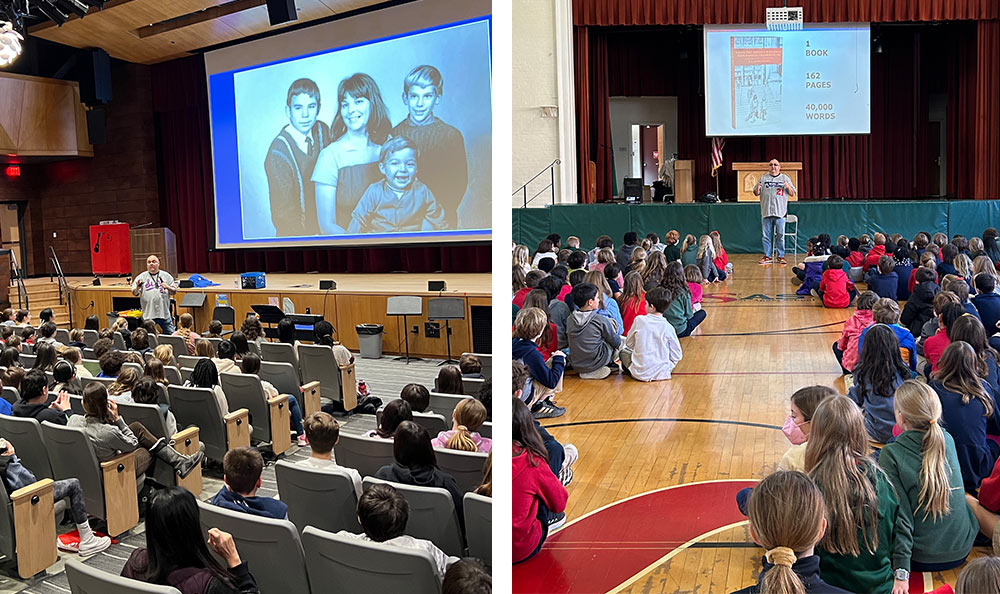
Your website says, “All along I had great teachers like Mr. Prothro, Mr. Tyree, and Ms. White who encouraged me to write.” Could you share some of the ways those teachers helped you become a better writer?
In fifth grade, Mr. Prothro read our poems aloud along with famous poems and asked the class to guess who wrote them. When he read my poem, a girl guessed that it had been written by Shakespeare. He smiled at me and said, “James, someone thinks something you wrote was written by the greatest writer in history. How does that make you feel?” I was HOOKED.
In ninth grade, I told Mr. Tyree that I wanted to write scripts for movies, television shows, or plays. Without hesitation, he told me that if I wrote a play, we would produce it for the entire school. I wrote what is likely the most inappropriate Christmas play ever written: It involved terrorists, Santa Claus, and lots of bad jokes. But we produced it, and the audience laughed; I knew what I wanted to do.
Ms. White, my eleventh-grade English teacher, was the hardest grader I ever had. She constantly challenged me to get better, and I loved every second of it.
Together, these teachers basically were all giving me the same piece of advice: Write from your heart and believe in yourself. That’s the advice I give to young writers too.
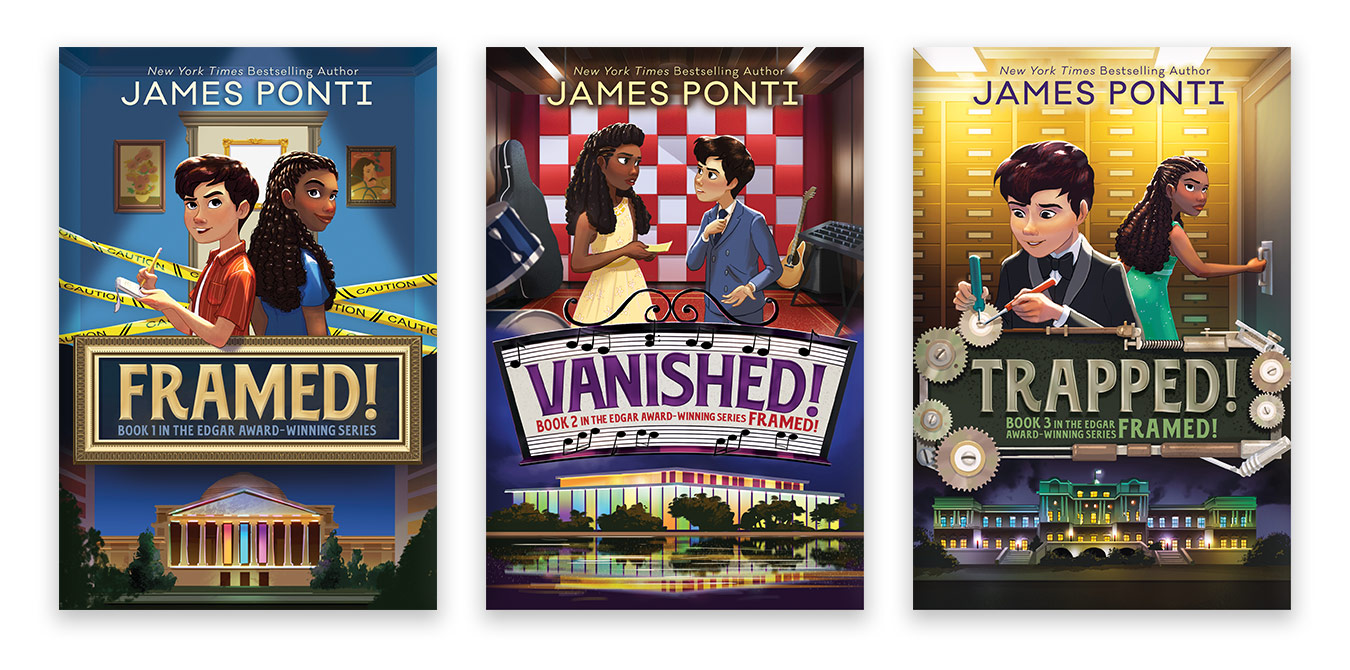
Write from your heart and believe in yourself. That’s the advice I give to young writers too.”
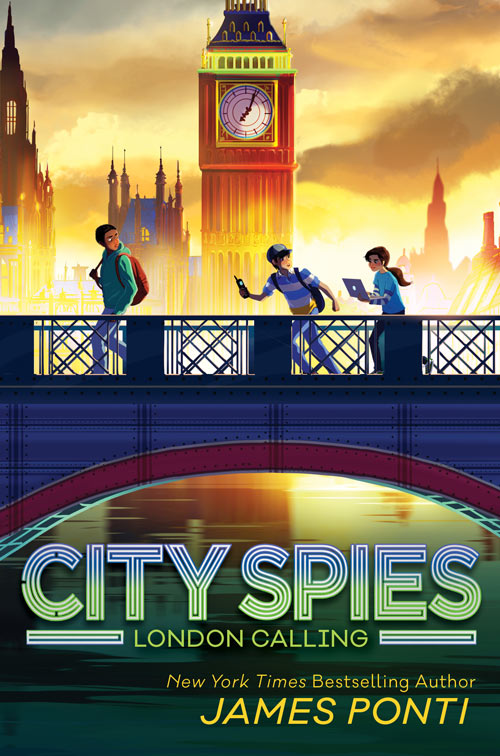
Can you share some details about London Calling (which comes out in just a few days) and your other future titles?
London Calling has what City Spies fans have been clamoring for—we find out everything about Clementine, Annie, and Le Fantôme. We also send the series in a new direction for upcoming books. I can’t wait for people to read it! Beyond that, know that there will be new City Spies and The Sherlock Society books coming for a while. We’re just getting started!
What’s your favorite part of creating books for young people?
I love the kidlit community—every part of it. My best friends are some of the best kids’ writers in the world, and I am such a fan of their work. I get to engage with teachers and librarians in a meaningful way. But most of all, I get to interact with young people who are filled with energy, optimism, and creativity. They inspire me every single day!
I get to interact with young people who are filled with energy, optimism, and creativity. They inspire me every single day!”
What are the best ways for educators and librarians to connect with you or to follow you on social media?
You can find me on X (@jamesponti), Instagram (@jamespontibooks), and Blue Sky (@jamesponti.bsky.social)!
Be sure to check out James Ponti’s great resources for classroom and school libraries; they can be found at https://www.jamesponti.com/schools. He also describes a fantastically fun escape room adventure (set in a school library) in The Sherlock Society.

